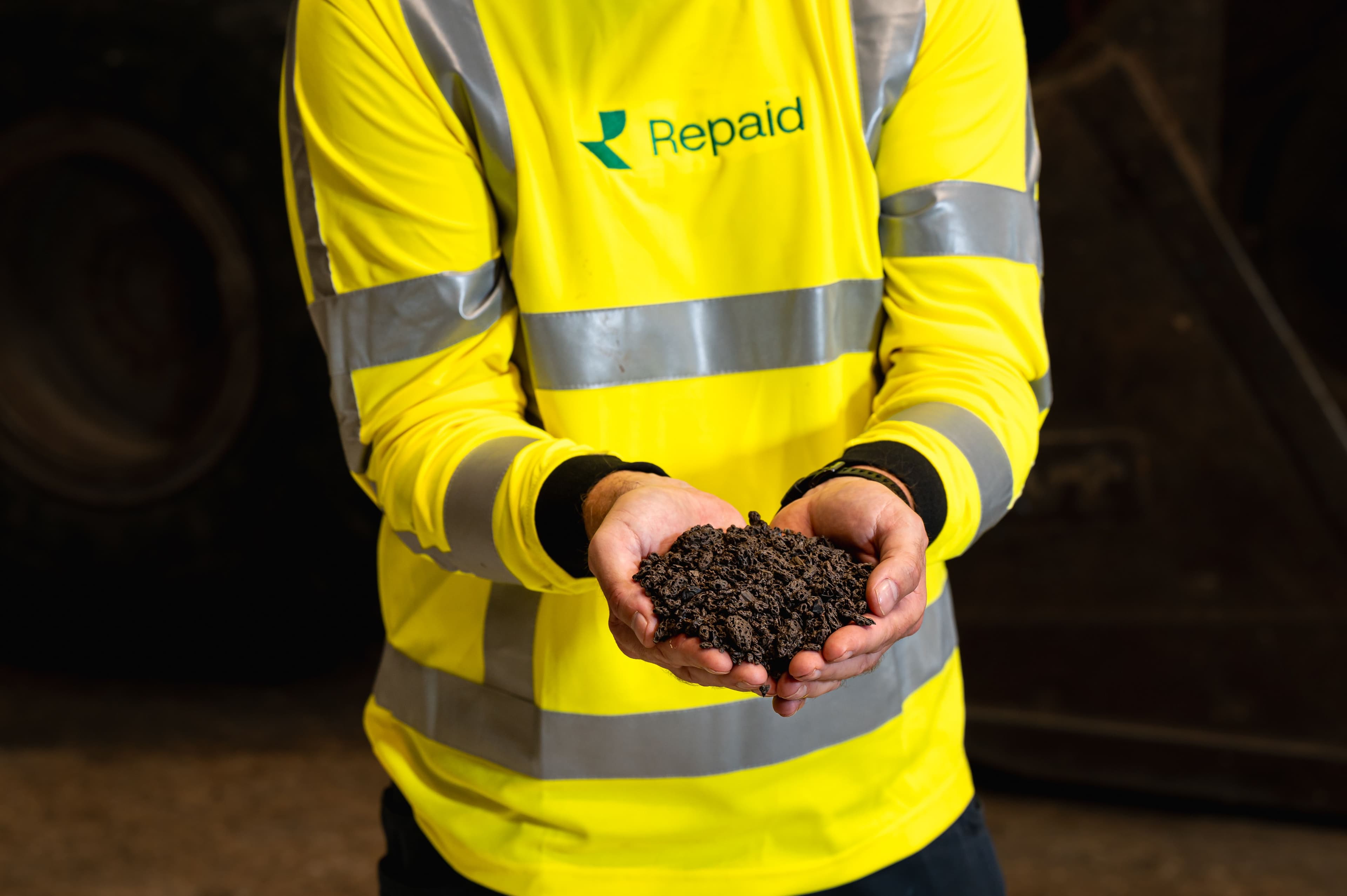Repaid is 'diaper', spelled backwards.
This play on words fits in perfectly with our unique innovation: technology that completely breaks down diapers and makes them reusable. Patented technology, based on a thermal process without the use of chemicals, which already operates on an industrial scale today. This enables us to recover 95% of the raw materials, while according to independent research commissioned by the Dutch government we can save less than 964 kg of CO2-equivalent emissions per ton of diaper waste.
Cleaning, sieving, centrifuging and recovery. With this recycling process we convert used diapers and incontinence materials into reusable plastic granules, fibres and a binder. We are already saving many tons of waste from the incinerator right now. We strongly believe in even more potential. After all, the mountain of disposable diaper waste is a problem that is only growing. Not only in the Netherlands, where the first factory can process around 5% of this mountain of diapers annually, but also worldwide.
Our technology is not only effective, but also future-proof. It can handle different types of diaper materials, including biodegradable and bio-based varieties. This makes our approach flexible and ready for future innovations from diaper manufacturers.

Fully compatible modular technology
The Repaid diaper recycling technology is available under license to waste-to-energy plants and other initiatives. A major advantage is that the technology is fully compatible with existing waste-to-energy plants.
One of the most important requirements we place on our technology is robustness. That's why Repaid's diaper recycling plants are designed in such a way that its components are not only resistant to intensive use, they can also efficiently process a wide range of diaper and incontinence waste. This results in robust integrated installations for large-scale diaper recycling with a proven track record in net-positive climate benefits.
Part of Elsinga
Repaid is an independent label of Elsinga Beleidsplanning en Innovatie B.V. Founder Willem Elsinga is the man behind the idea. Jouke Elsinga now brings Repaid to the rest of the world: “Think of Repaid as a flywheel that turns innovative technology into major positive changes around the world. We focus on making raw materials reusable by recycling diapers and incontinence products. We want to work towards a better environment starting not tomorrow, but today, adding value for waste processors. We like to work with the technicians on site, as a single team.”
World's first diaper recycling plant
Since 2013 we have been working with the waste-to-energy plant ARN in Nijmegen. In just a few years' time, this has grown into the world's first diaper recycling plant, capable of processing 15 million kilos of diaper waste annually. This waste is collected via public collection points in the region, often close to daycare centers, but also via waste collectors at nursing homes.
And as far as we are concerned, this is just the beginning. There are plenty of potential partners in the Netherlands and abroad with whom we can make a real difference. We are eager to help waste processors and municipalities in their transition to circular waste processing. From feasibility studies to design, implementation and optimization of recycling plants: we provide support at every stage. Our expertise ensures that recycling projects are not only successful, but also have a lasting impact on the environment and society.
What truly sets us apart
We are innovating constantly. And through partnership, we allow each Repaid factory to grow with the new insights we gain from developing new factories. This sustainable approach benefits everyone.


